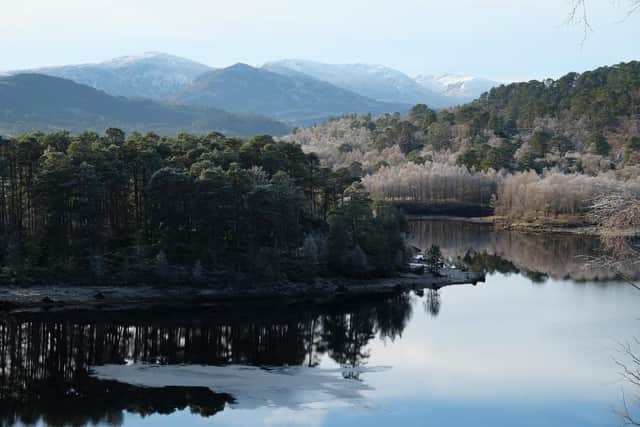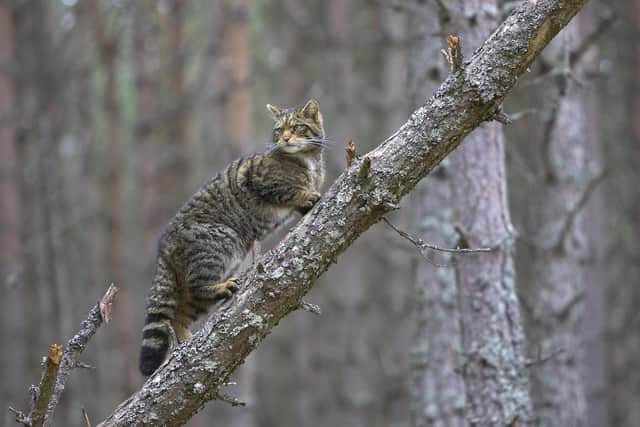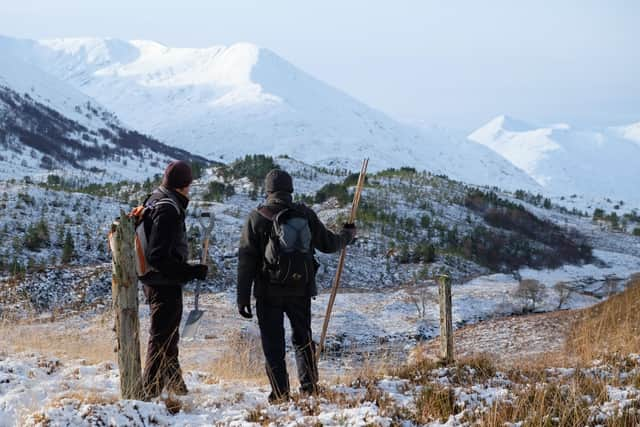Pioneering Scottish rewilding project among global nominees for recognition by United Nations
Affric Highlands, launched last year, is an ambitious community-focused initiative that intends to create a vast nature recovery area on land stretching from Loch Ness to Glen Shiel, on Scotland’s west coast, over the next three decades.
The biggest project of its kind in the UK, it will involve restoration of forests, peatlands and riverside habitats across the landscape to help save indigenous wildlife from extinction, boost biodiversity, create and sustain new nature-based jobs and support re-peopling of the region.
Advertisement
Hide AdAdvertisement
Hide AdNow both the UK and Scottish governments have recommended the scheme should be considered for UN World Restoration Flagship status.
Competition for the globally prestigious designation is fierce.
Affric Highlands will be competing against more than 400 nominees expected from around the world, with a final shortlist of ten due to be announced later this month.
Led by conservation charity Trees for Life – which is in the process of setting up the world’s first rewilding centre at its conservation estate at Dundreggan, near Glenmoriston – the Affric scheme brings together a wide range of partners to create a bold new vision for the area.


It aims to demonstrate how large-scale nature recovery can improve people’s lives, create new jobs and benefit local communities.
The team has welcomed the move by Scottish and UK leaders.
Steve Micklewright, chief executive of Trees for Life, said: “The huge environmental challenges of the coming decade need to be met with huge ambition.
“Affric Highlands is about scaling up ecological restoration, working collaboratively, and seeing nature as a key ally in tackling climate breakdown.


“We want to show how nature, local communities and livelihoods can help each other thrive.
Advertisement
Hide AdAdvertisement
Hide Ad“We’re delighted that both the Scottish and UK governments have given Affric Highlands their endorsement for flagship status.
“It’s increasingly clear that rewilding offers hope for nature, climate and people.”


The initiative will include work to regenerate Scotland’s ancient Caledonian forest.
Scottish wildcats, golden eagles, red squirrels, mountain hares, trout, ospreys and otter are among the iconic native wildlife species set to benefit.
Trees for Life is also working with schools, community groups and health and youth services in the area to help shape the direction of Affric Highlands.
Broad community engagement is one of the UN’s key principles for nature recovery.
Stephanie Kiel, Affric Highlands team leader, said: “We are working closely with a range of different landowners and land managers to develop and link up nature restoration projects across the Affric Highlands area, which encompasses Glens Affric, Cannich, Moriston and Shiel.
“People are a central part of this vision, and more resilient ecosystems will support a greater diversity of job opportunities that can help sustain rural communities.
Advertisement
Hide AdAdvertisement
Hide Ad“We are providing the expertise to help restore native woodlands, including through natural regeneration, while returning much-needed trees to the banks of upland streams and rivers to provide vital shade, nutrients and shelter for Scotland’s struggling Atlantic salmon.”
Comments
Want to join the conversation? Please or to comment on this article.
